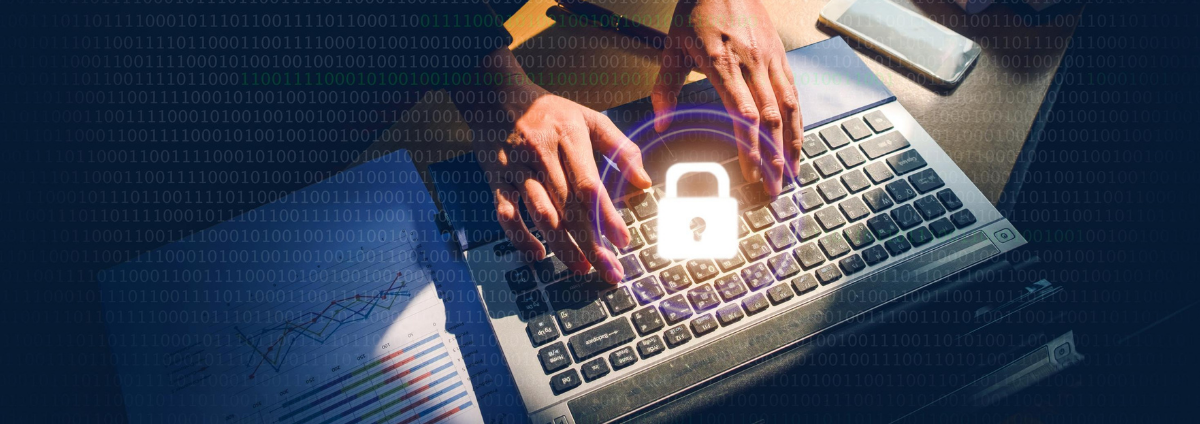
06 Jun Are Cyber Threats the New WMD?
The United States spent more than a billion dollars looking for Weapons of Mass Destruction (WMDs) in Iraq during the George W. Bush Administration. The idea of a madman having the capability of causing mass casualty on his people, American allies, or on Americans following 9/11 was enough for both political parties to approve sending troops into Iraq.
But what if the newest form of WMDs is resting at home in America? What if another madman had the capability of causing mass chaos, that could lead to mass casualties? Sounds crazy right? But the reality is that wars are being fought differently in the twenty-first century, and the enemy could use a cyber-attack to take down our financial system and our electric grid.
Business has been weaponized. When Vladimir Putin ordered his troops into Ukraine, the West responded with historical sanctions on Russia. The United States and its allies did not send in troops or missiles, instead they targeted Russia’s financial system. The White House announcement of the sanctions laid out the desired effect: “We have now targeted all ten of Russia’s largest financial institutions, including the imposition of full blocking and correspondent and payable-through account sanctions, and debt and equity restrictions, on institutions holding nearly 80% of Russian banking sector assets.”
Will Russia respond to NATO’s sanctions? And if Putin does order a response, will that response be a cyber-attack?
Will Russia respond to NATO’s sanctions? And if Putin does order a response, will that response be a cyber-attack? CBS’s 60-Minutes reported the White House is monitoring America’s critical infrastructure following warnings from the Department of Homeland Security on threats to the electrical grid.
Imagine the worst-case scenario. If our power grid were to go down for a few days, what would that mean for the average American? Look no further than the historic winter storm that hit Texas in February of 2021. According to the Department of Texas Health Services, a total of 246 people died when the power grid failed. The age of the victims ranged from 1 to 102 years old. The leading cause of death was hypothermia. Our homes today are not built to last without power.
I live in Texas, and thankfully we had power during that winter storm. But a recent ice storm took out our power for 24 hours. I managed to cook food on our propane grill and provide some heat from our wood-burning fireplace. But if our power outage had lasted longer than a couple of days, my small propane tank might have run out of fuel, and we would have exhausted our wood supply.
A mass power failure could also take down the internet. You cannot process a credit card payment if you are not connected online. This means you cannot pay for food or gas, and you may not even be able to access cash from your bank. Even if the temperature outside is comfortable enough to open windows, you still need access to clean water and food to survive.
The Department of Defense is taking the risk very seriously, having launched Cybersecurity Maturity Model Certification (CMMC) 2.0 in November of 2021. “CMMC 2.0 will dramatically strengthen the cybersecurity of the defense industrial base,” said Jesse Salazar, Deputy Assistant Secretary of Defense for Industrial Policy. “By establishing a more collaborative relationship with industry, these updates will support businesses in adopting the practices they need to thwart cyber threats while minimizing barriers to compliance with DoD requirements.”
According to the Small Business Administration, ninety-nine percent of all businesses in America are small businesses. That is what makes America so vulnerable to a cyber-attack. Small business owners are focused on cash flow, supply chain issues, the rising cost of fuel, and so many other factors to keep their business open and growing. But they need to focus on making sure their online presence is secure.
There are some basic steps you can take today to make your online presence more secure. Start with updating your passwords. Don’t use the same password for multiple accounts. There are encrypted programs available to store and create new passwords for you. Use a two-step process to authenticate log-ins. Consult with a cyber-security expert. It is more cost effective to spend money on preventive measures versus reacting to a cyber-attack.
Having a plan in place to survive a few of days without power is something you should consider.
The idea of a massive cyber-attack might seem like the script to a movie, but did we ever imagine a scenario where the entire world would shut down for weeks because of a global pandemic? Better to be prepared and not need your preparation, than to be caught off guard.
 Scott Miller is the CEO of Centerpost Media, host of the Create. Build. Manage. show (seen on BizTV, heard on BizTalkRadio, and available wherever you listen to podcasts,) and a member of the Forbes Agency Council, Entrepreneur Leadership Network, and Dallas Business Journal Leadership Trust. You can find Scott on Facebook, Instagram and Twitter via “@scottmillerceo” or on LinkedIn via “@scottmillermedia.” Centerpost Media is a content marketing agency with a vision to help every business they encounter with their media needs by providing outstanding quality, service and value. Centerpost Media is the parent company to BizTV, BizTalkRadio, BizTalkPodcasts and Bizvod.
Scott Miller is the CEO of Centerpost Media, host of the Create. Build. Manage. show (seen on BizTV, heard on BizTalkRadio, and available wherever you listen to podcasts,) and a member of the Forbes Agency Council, Entrepreneur Leadership Network, and Dallas Business Journal Leadership Trust. You can find Scott on Facebook, Instagram and Twitter via “@scottmillerceo” or on LinkedIn via “@scottmillermedia.” Centerpost Media is a content marketing agency with a vision to help every business they encounter with their media needs by providing outstanding quality, service and value. Centerpost Media is the parent company to BizTV, BizTalkRadio, BizTalkPodcasts and Bizvod.



